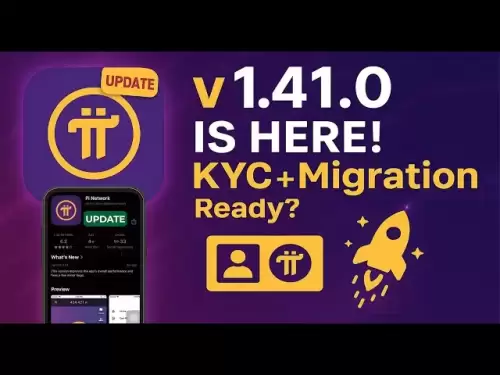-
 Bitcoin
Bitcoin $106,987.7485
-2.51% -
 Ethereum
Ethereum $2,741.4915
-2.52% -
 Tether USDt
Tether USDt $1.0000
0.00% -
 XRP
XRP $2.2395
-3.64% -
 BNB
BNB $662.0806
-1.15% -
 Solana
Solana $158.8132
-4.94% -
 USDC
USDC $0.9997
-0.01% -
 Dogecoin
Dogecoin $0.1880
-6.66% -
 TRON
TRON $0.2767
-5.15% -
 Cardano
Cardano $0.6838
-5.59% -
 Hyperliquid
Hyperliquid $41.5457
-1.85% -
 Sui
Sui $3.2913
-6.00% -
 Chainlink
Chainlink $14.2788
-7.43% -
 Avalanche
Avalanche $21.0567
-5.94% -
 Bitcoin Cash
Bitcoin Cash $431.3332
-2.89% -
 Stellar
Stellar $0.2746
-2.67% -
 UNUS SED LEO
UNUS SED LEO $8.8642
-1.23% -
 Toncoin
Toncoin $3.1939
-2.58% -
 Shiba Inu
Shiba Inu $0.0...01268
-4.84% -
 Hedera
Hedera $0.1695
-5.86% -
 Litecoin
Litecoin $88.8574
-3.59% -
 Polkadot
Polkadot $4.0891
-4.68% -
 Ethena USDe
Ethena USDe $1.0006
0.01% -
 Monero
Monero $317.7503
-5.56% -
 Bitget Token
Bitget Token $4.6910
-3.59% -
 Dai
Dai $0.9997
-0.01% -
 Pepe
Pepe $0.0...01231
-5.84% -
 Uniswap
Uniswap $7.9001
-5.60% -
 Pi
Pi $0.6296
-1.50% -
 Aave
Aave $296.1222
-6.08%
What does KYC mean in cryptocurrency? Why do exchanges need it?
KYC in crypto verifies user identities to prevent fraud, comply with regulations, and build trust, though some platforms offer privacy-focused alternatives without it.
Jun 11, 2025 at 02:35 am
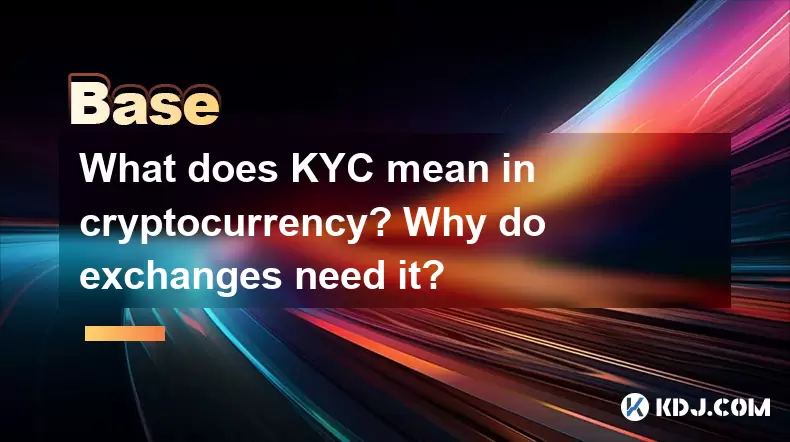
What is KYC in the Context of Cryptocurrency?
KYC, which stands for Know Your Customer, refers to a set of procedures that financial institutions and businesses use to verify the identity of their clients. In the cryptocurrency industry, this typically involves collecting personal information such as full name, date of birth, address, and government-issued identification documents like passports or driver's licenses.
Cryptocurrency exchanges implement KYC protocols to ensure that users are who they claim to be. This process helps prevent fraudulent activities, money laundering, and other forms of financial crime. While cryptocurrencies were initially seen as anonymous or pseudonymous, regulatory pressures have pushed most major exchanges to adopt KYC measures to comply with global laws.
Why Do Cryptocurrency Exchanges Require KYC?
One of the primary reasons exchanges require KYC is due to legal and regulatory obligations. Governments around the world have introduced anti-money laundering (AML) regulations that apply to digital assets. As a result, exchanges must perform due diligence on their users to remain compliant with these rules.
Another reason is risk management. By verifying user identities, exchanges can monitor suspicious transactions and flag potential threats before they escalate into larger issues. Additionally, KYC helps protect the platform from being used by malicious actors, including terrorists and cybercriminals.
Moreover, implementing KYC processes can enhance trust among institutional investors. Many large financial players are hesitant to engage with crypto platforms unless there are clear verification mechanisms in place. This has led to increased adoption of KYC policies across reputable exchanges globally.
How Does the KYC Process Work on Crypto Exchanges?
When you sign up on a cryptocurrency exchange that requires KYC, you will typically go through the following steps:
- Account Registration: You start by creating an account using your email address and setting a secure password.
- Personal Information Submission: You're asked to provide details such as your full legal name, date of birth, nationality, and residential address.
- Document Upload: Most exchanges ask users to upload a copy of a valid ID, such as a passport, national ID card, or driver’s license.
- Selfie Verification: Some platforms may request a selfie holding your ID document to confirm it belongs to you.
- Verification Wait Time: Once all documents are submitted, the exchange reviews them, usually within minutes to several days depending on the platform.
- Completion Notification: Upon approval, you receive confirmation that your KYC is complete, allowing you to access higher trading limits or additional services.
This process ensures that only verified individuals can participate in trading, depositing, and withdrawing funds from the platform.
Are There Any Alternatives to KYC-Based Exchanges?
Yes, there are decentralized exchanges (DEXs) and some peer-to-peer platforms that do not require KYC. These platforms operate without central authority and allow users to trade directly from their wallets without revealing personal information.
However, while non-KYC platforms offer more privacy, they also come with certain limitations. For instance, they often have lower liquidity, fewer trading pairs, and limited customer support. Additionally, because these platforms aren’t regulated, they may be more vulnerable to scams or hacking attempts.
Some centralized exchanges also offer limited access without KYC, such as basic trading with caps on daily transaction volumes. If you wish to increase your withdrawal or trading limits, completing KYC becomes mandatory.
It's important to weigh the pros and cons of KYC vs non-KYC platforms based on your individual needs, whether it's privacy, convenience, security, or regulatory compliance.
What Are the Privacy Concerns Around KYC in Crypto?
A common concern among crypto users is the collection and storage of personal data during the KYC process. Users worry about how their sensitive information is handled and whether it could be leaked or misused.
Exchanges are expected to follow strict data protection protocols to safeguard user information. However, data breaches have occurred in the past, leading to concerns over the security of KYC databases. To mitigate risks, many platforms now use encryption and multi-factor authentication to protect stored data.
Additionally, users should carefully read the privacy policy of any exchange before submitting documents. It’s crucial to understand how long the platform retains your data, under what circumstances it might be shared, and what rights you have regarding your personal information.
Some users choose to use privacy-focused tools like burner emails or temporary phone numbers when registering for accounts to minimize exposure of personal details.
Frequently Asked Questions
1. Can I skip KYC on major crypto exchanges?
Most major exchanges require KYC to unlock full functionality. However, you may be able to perform limited trades or deposits without it, but withdrawals and higher transaction limits will generally require verification.
2. Is my KYC data shared with third parties?
Reputable exchanges do not share KYC data with third parties unless required by law enforcement or regulatory authorities. Always check the exchange’s privacy policy to understand its data-sharing practices.
3. How long does the KYC process take?
The time varies by platform and volume of requests. Most automated systems complete verification within minutes, while manual reviews may take up to 48 hours or longer during peak times.
4. What documents are acceptable for KYC verification?
Commonly accepted documents include a government-issued ID such as a passport, national ID card, or driver’s license. Some platforms may also accept utility bills or bank statements as proof of address.
Disclaimer:info@kdj.com
The information provided is not trading advice. kdj.com does not assume any responsibility for any investments made based on the information provided in this article. Cryptocurrencies are highly volatile and it is highly recommended that you invest with caution after thorough research!
If you believe that the content used on this website infringes your copyright, please contact us immediately (info@kdj.com) and we will delete it promptly.
- Japanese Fashion Company ANAP Buys 50.5 Bitcoin, Plans to Acquire 950 More
- 2025-06-12 20:50:13
- Platinum and palladium price forecasts by Metals Focus: Platinum to average $970/oz in 2025, up 1% from 2024
- 2025-06-12 20:50:13
- Pakistan Plans to Redirect 2,000 MW of Idle Electricity to Bitcoin Mining to Ease $7.4B in Annual Energy Losses.
- 2025-06-12 20:45:13
- Shardeum's Technical and Tokenomics Whitepaper Receives MiCA Approval
- 2025-06-12 20:45:13
- Atomic Wallet Review: The Best Cryptocurrency Wallet for Everyday Use?
- 2025-06-12 20:42:00
- Polymath Expands Its Mission to Tokenize the Global Financial System with the Launch of a Free Onboarding Webinar
- 2025-06-12 20:35:12
Related knowledge
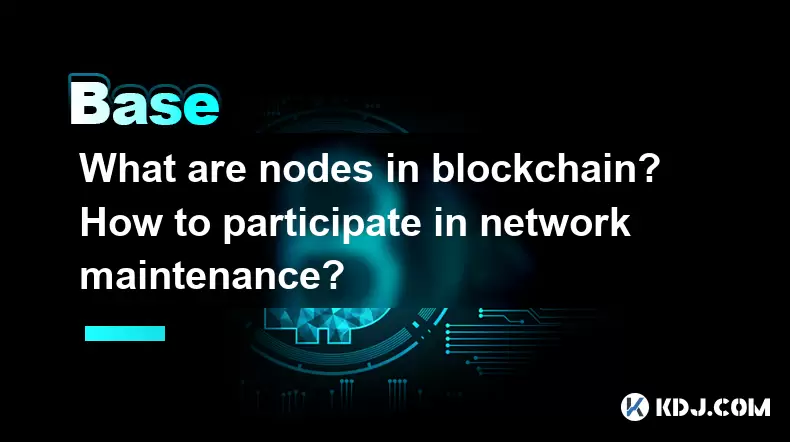
What are nodes in blockchain? How to participate in network maintenance?
Jun 10,2025 at 09:35pm
Understanding Nodes in BlockchainIn the realm of blockchain technology, nodes serve as the foundational building blocks that enable decentralized networks to function. A node is essentially a device—often a computer or server—that participates in the network by storing and validating data. Each node contains a copy of the entire blockchain ledger, ensur...
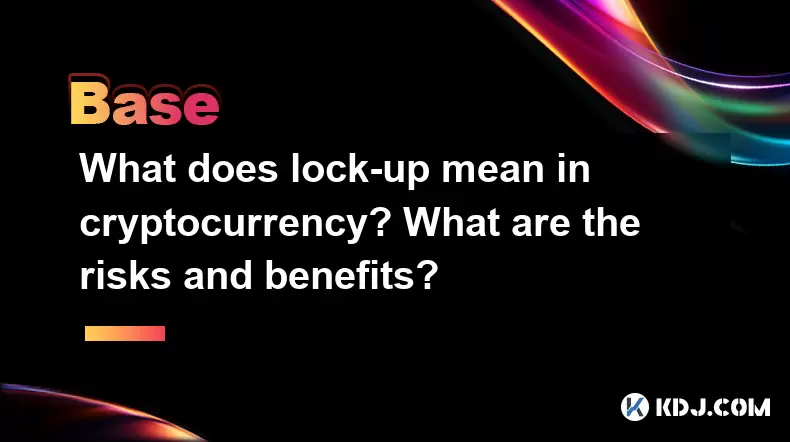
What does lock-up mean in cryptocurrency? What are the risks and benefits?
Jun 10,2025 at 08:49pm
Understanding Lock-up in CryptocurrencyIn the world of cryptocurrency, the term lock-up refers to a mechanism where a certain amount of tokens or coins are temporarily restricted from being sold, transferred, or withdrawn. This period is typically pre-defined and agreed upon during events such as initial coin offerings (ICOs), token sales, or through sm...
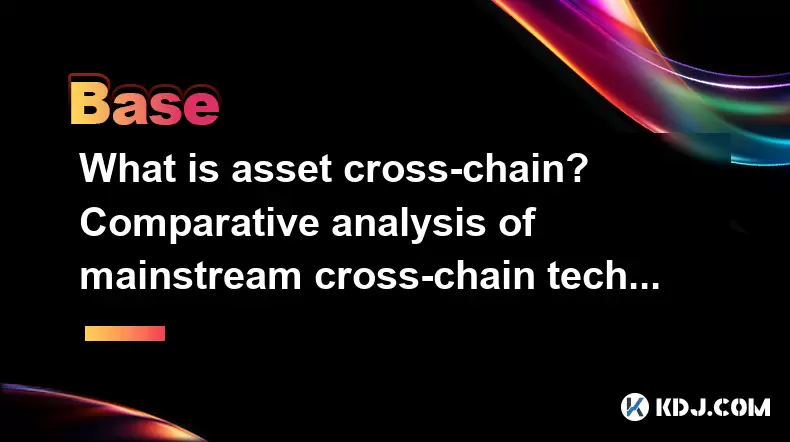
What is asset cross-chain? Comparative analysis of mainstream cross-chain technologies
Jun 11,2025 at 08:09pm
Understanding the Concept of Asset Cross-ChainAsset cross-chain refers to the technology and mechanisms that allow digital assets from one blockchain network to be transferred or utilized on another blockchain network. This process enables interoperability, which is crucial in a multi-chain ecosystem where different blockchains serve various purposes, s...
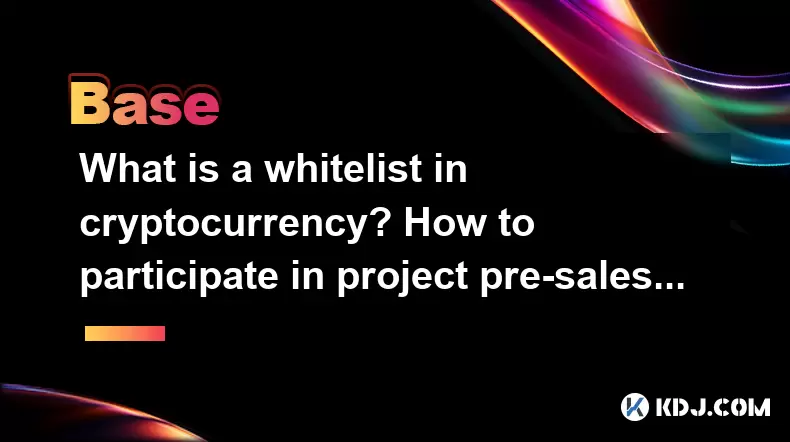
What is a whitelist in cryptocurrency? How to participate in project pre-sales?
Jun 11,2025 at 04:43pm
Understanding the Concept of a Whitelist in CryptocurrencyIn the world of cryptocurrency and blockchain projects, a whitelist refers to a curated list of approved participants or wallet addresses that are granted special access or privileges. This mechanism is commonly used during token sales, initial coin offerings (ICOs), or decentralized finance (DeF...

What is Rug Pull? How to identify cryptocurrency scams?
Jun 10,2025 at 10:43pm
What is Rug Pull in Cryptocurrency?In the world of decentralized finance (DeFi), a rug pull refers to a type of scam where developers or liquidity providers abruptly remove funds from a decentralized exchange (DEX) pool, leaving investors with worthless tokens. This malicious act typically occurs in projects that lack transparency and credible audits. R...

What are bull and bear markets in cryptocurrency? Analysis of cyclical laws
Jun 10,2025 at 11:42pm
Understanding Bull and Bear Markets in CryptocurrencyIn the world of cryptocurrency, the terms bull market and bear market are frequently used to describe the general direction of price movements. A bull market refers to a period during which prices are rising or are expected to rise, often accompanied by widespread optimism among investors. In contrast...

What are nodes in blockchain? How to participate in network maintenance?
Jun 10,2025 at 09:35pm
Understanding Nodes in BlockchainIn the realm of blockchain technology, nodes serve as the foundational building blocks that enable decentralized networks to function. A node is essentially a device—often a computer or server—that participates in the network by storing and validating data. Each node contains a copy of the entire blockchain ledger, ensur...

What does lock-up mean in cryptocurrency? What are the risks and benefits?
Jun 10,2025 at 08:49pm
Understanding Lock-up in CryptocurrencyIn the world of cryptocurrency, the term lock-up refers to a mechanism where a certain amount of tokens or coins are temporarily restricted from being sold, transferred, or withdrawn. This period is typically pre-defined and agreed upon during events such as initial coin offerings (ICOs), token sales, or through sm...

What is asset cross-chain? Comparative analysis of mainstream cross-chain technologies
Jun 11,2025 at 08:09pm
Understanding the Concept of Asset Cross-ChainAsset cross-chain refers to the technology and mechanisms that allow digital assets from one blockchain network to be transferred or utilized on another blockchain network. This process enables interoperability, which is crucial in a multi-chain ecosystem where different blockchains serve various purposes, s...

What is a whitelist in cryptocurrency? How to participate in project pre-sales?
Jun 11,2025 at 04:43pm
Understanding the Concept of a Whitelist in CryptocurrencyIn the world of cryptocurrency and blockchain projects, a whitelist refers to a curated list of approved participants or wallet addresses that are granted special access or privileges. This mechanism is commonly used during token sales, initial coin offerings (ICOs), or decentralized finance (DeF...

What is Rug Pull? How to identify cryptocurrency scams?
Jun 10,2025 at 10:43pm
What is Rug Pull in Cryptocurrency?In the world of decentralized finance (DeFi), a rug pull refers to a type of scam where developers or liquidity providers abruptly remove funds from a decentralized exchange (DEX) pool, leaving investors with worthless tokens. This malicious act typically occurs in projects that lack transparency and credible audits. R...

What are bull and bear markets in cryptocurrency? Analysis of cyclical laws
Jun 10,2025 at 11:42pm
Understanding Bull and Bear Markets in CryptocurrencyIn the world of cryptocurrency, the terms bull market and bear market are frequently used to describe the general direction of price movements. A bull market refers to a period during which prices are rising or are expected to rise, often accompanied by widespread optimism among investors. In contrast...
See all articles

























